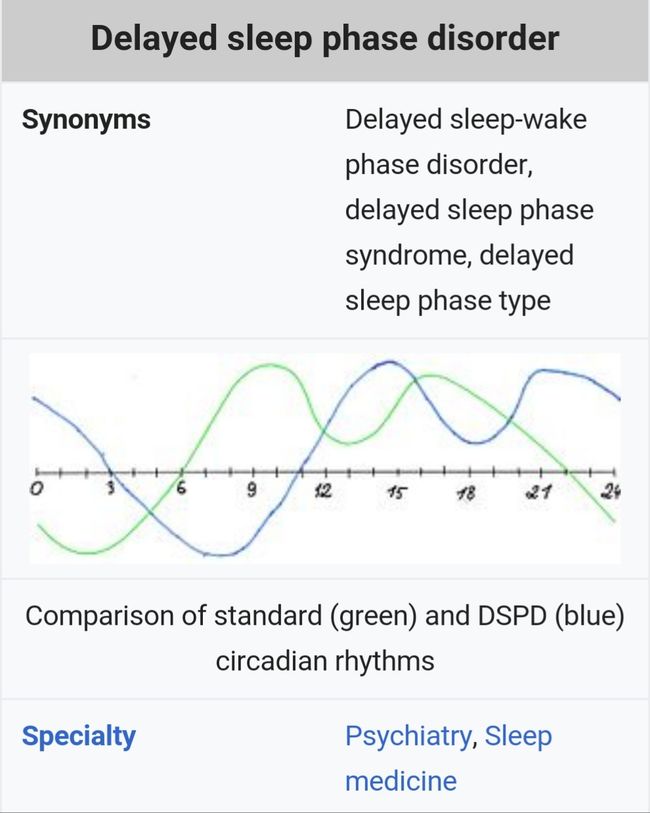安全点是什么?为什么有人会写Thread.sleep(0)这样的代码?Thread.sleep(0)的作用是什么?先看下面的代码实例:for(inti=0,intj=0;i
飞鸟集每日一品(155)
语熙
泰戈尔原文:Silencewillcarryyourvoicelikethenestthatholdsthesleepingbirds.冯唐版:静寂盛了你的声音鸟巢盛了睡着的鸟郑振铎版:沉默蕴蓄着语声,正如鸟巢拥围着睡鸟。我的翻译:缄默酝酿着发声,就像穴巢环抱睡鸟carry一般是“运输,带来,拿来”的意思,放在原文当中去理解就是“安静带来你自己的声音。”silence可以理解成“安静,沉默,缄默”
Android电源管理基础知识整理
轻口味
android
DozeMode模式由于Android的开放特性,加上国内app开发者的觉悟普遍不高的情况下,越来越多的app开始利用安卓的系统特性甚至可以称为漏洞,故意让app退出后仍然占用大量的硬件资源。越来越多的应用会在后台运行时“假死”,即不进入真正的Sleep,而是不断在后台轮询搜集用户行为或者保持某些长链接来保障数据的实时性。而Android系统自身并未出台对应的策略来约束或者限制这类应用行为,当这类
linux多个sh 同时执行命令,sh, 批量执行Linux命令
一颗橙子君
linux多个sh同时执行命令
step1:创建一个sh批处理命令文件#vim/etc/batch_ssh/install_redis.shstep2:给当前用户,能够执行sh脚本权限#chmodinstall_redis.sh777step3:编写要批量执行的命令,read表示等待前端用户输入,sleep表示等待时间单位为秒。echo'\nbegintoinstall01plugin\n';yuminstallcpp-y;ec
两阶段事务提交
码农小伙
事务java
简介分布式事务是指会涉及到操作多个数据库的事务,在分布式系统中,各个节点之间在物理上相互独立,通过网络进行沟通和协调。XA就是X/OpenDTP定义的交易中间件与数据库之间的接口规范(即接口函数),交易中间件用它来通知数据库事务的开始、结束以及提交、回滚等。XA接口函数由数据库厂商提供。二阶段提交(Two-phaseCommit)是指,在计算机网络以及数据库领域内,为了使基于分布式系统架构下的所有
linux-性能优化命令
码农小伙
Linuxlinux性能优化服务器
top我们先来说说top命令用法,这个命令对于我们监控linux性能是至关重要的,我们先来看看展示结果。top-15:20:23up10min,2users,loadaverage:0.39,0.53,0.35Tasks:217total,1running,216sleeping,0stopped,0zombie%Cpu(s):0.0us,0.0sy,0.0ni,100.0id,0.0wa,0.0
《时间管理作息时间》
SuningN
今天房雅老师给我们讲了《时间管理作息模型》,如何养成早睡早起习惯。通过三个工具:1、sleeptown;2、大小闹钟;3、三条命法。1、sleeptown的使用方法。2、大小闹钟使用方法。3、三条命法,设置一周作息时间,三天不用早起。睡前准备工作:安排好你想做的事,不要求每天可以做到。早睡习惯:1、早起倒逼法,保持一周早起,养成来好习惯。2、洗澡早睡法:睡前1小时洗澡,促进睡眠。3、晚上分手法:洗
使用Python实现12306自动化抢票
柳绿花红云淡风轻
pythonpythonselenium软件测试
今天实现用python实现自动访问12306网站并抢票准确工作1.下载Chrome驱动,需要与chrome版本保持一致如何查看chrome浏览器版本-百度经验(baidu.com)2.下载代码中的相关包,主要selenuim、splinter注意事项:sleep设置时注意爬取速度限制,chrome版本与驱动器版本需要保持一致,由于12306图片验证码复杂,登录时需要手动选择验证图片。如何查看城市的
python 实现模拟键盘输入
安生生申
pythonpython
importtimefrompynput.keyboardimportKey,Controllerkeyboard=Controller()a=input("请输入你要循环的内容:")b=int(input("请输入循环的次数:"))print("数据以接收!请将光标移动到对话框")time.sleep(2)foriinrange(3):print(r"距离程序运行还有%d秒"%(3-i))tim
AttributeError: module ‘asyncio‘ has no attribute ‘run‘ 或者是 “create_task”
小二丶上酒
Python
asyncio异步协程写法在python3.7之前asyncdeff1(num):print("f1start")awaitasyncio.sleep(num)print("f1end")asyncdeff2(num):print("f3start")awaitasyncio.sleep(num)print("f3end")asyncdeff3(num):print("f3start")await
python压力测试_Python 压力测试脚本
weixin_39561673
python压力测试
目的是写个脚本,起多线程去call一个接口,来测试一个并发问题。实现方案是将接口做到了一个页面中,用python的httpget请求来访问查询。importurllibimportthreadingfromtimeimportctime,sleepdeft1(func):foriinrange(10):f=urllib.urlopen("http://www.mystation.com/myint
ffmpeg读取文件速度的控制
PETER327447
音视频:ffmpeg
两种方法:(1)根据采样率算出每帧播放时间t,然后sleep(t);笨办法(2)根据读取的AVpacket的pts控制速度,核心思想:将ffmpeg的pts转换成系统时间,然后比较当前时间和读取的pts时间,差值即为控制的因素1、获取启动时间,start_time=av_gettime();2、转换avpacket的ptsAVRationaltime_base=m_pFormatContext->
Maven超详细教程(二):Maven 生命周期管理详解
黄尚圈圈
服务器运维
Maven作为Java开发者广泛使用的项目管理工具,其核心特性之一就是其强大的生命周期管理。Maven生命周期定义了一系列有序的阶段(phases),每个阶段都可以绑定特定的插件(plugins)和目标(goals),以实现项目的构建、测试、打包、部署等任务。本文将详细梳理Maven的主要生命周期、各个阶段以及它们默认绑定的插件和目标。Maven生命周期概览Maven主要有三个内置的生命周期:cl
Xcode 打包报错Command PhaseScriptExecution failed with a nonzero exit code
fendoudexiaoniao_ios
xcodemacoscocoapods
解决办法:1、在Xcode项目中Pods->TargetsSupportFiles->Pods-项目名->Pods-项目名-frameworks中(大约在第44行)加上-f2、CocoaPods版本太旧了,可以尝试升级CocoaPods版本使用sudogemupdatecocoapods更新cocoapods,问题将在1.12.1版本已修复。删除项目根目录下的Podfile.lock、项目名.xc
Xcode打包出现错误Command PhaseScriptExecution failed with a nonzero exit code
沐梓弦乐
xcodemacoside
去年创建新项目打包遇到过,解决了今年遇到又忘记怎么解决的,因此写篇blog记录下该问题Xcode14+打包错误出现CommandPhaseScriptExecutionfailedwithanonzeroexitcode一般是还有这种消息UninstalledProducts/iphoneos/AFNetworking.framework"failed:Nosuchfileordirectory(
老友记第四季(第20集)
小神2
婚纱剧情:乔伊打鼾吵得钱德勒睡不着,钱送乔去医院看病;罗斯要和艾米莉结婚吓坏瑞秋,瑞秋把乔书华约出来说两人还不够疯狂,逼婚乔书华;莫妮卡取艾米莉的婚纱时忍不住试穿一发不可收拾。1.snore:打鼾,鼾声Monica:Iusedtogooutwithathisguythatwasareallylightsleeper,andwheneverIstartedtosnore,hewouldjustrol
小仙女读书笔记 Powerful Sleep有效睡眠读书笔记
教英语的小孙
大家好我是小仙女读书笔记。在这个专栏中,我会分享我平时读书的心得,也给大家推荐一些我读到的好书,希望可以给大家带来帮助。你也可以在其他平台找到我steemit:https://steemit.com/@littlexiannv:https://www.jianshu.com/u/47c73b7a8e0fyoutube:https://www.youtube.com/channel/UCkbDfzk
rabbitmq 怎么实现延迟消息队列?
搬砖的小子
javajava-rabbitmqrabbitmq分布式
Rabbitmq本身是没有延迟队列的,要实现延迟消息,一般有两种方式:1.通过Rabbitmq本身队列的特性来实现,需要使用Rabbitmq的死信交换机(Exchange)和消息的存活时间TTL(TimeToLive)。2.在rabbitmq3.5.7及以上的版本提供了一个插件(rabbitmq-delayed-message-exchange)来实现延迟队列功能。同时插件依赖Erlang/OPT
Mac使用K6初体验
软件测试K6
1.安装k6打开终端输入如下命令:brewinstallk62.编写Demo打开SublimeText编写如下代码并保存为test.jsimporthttpfrom'k6/http';import{sleep}from'k6';exportdefaultfunction(){http.get('http://test.k6.io');sleep(1);}然后在终端执行如下命令:k6runtest.
多线程的使用-->3
路ZP
java开发语言
目录1.死锁2.线程生命周期3.线程中断方法3.1Thread.sleep()方法3.2Thread.yield()方法3.3Thread.join()方法3.4Object.wait()方法3.5lock的wait等待4.Timer定时任务定时操作有两种方式1.死锁在线程同步过程中,因为多线程争抢锁资源,所以有些线程会执行,有些线程会等待。如果线程A和线程B分别需要X和Y两个锁资源恰好A获得了X
什么是反应诱导重构
yl--炼气
重构材料科学
反应诱导重构(Reaction-InducedPhaseTransformation,RIPT)是一种材料科学中的现象,指的是在特定的反应过程中,材料的晶体结构或相发生了重构或转变。这种现象广泛应用于催化、材料合成和功能材料的研究中。下面是对反应诱导重构的详细解释:1.基本概念反应诱导重构指的是在化学反应过程中,材料的结构由于反应条件的影响而发生相变或结构重组。通常,这种重构是在反应物转化为产物的
Java--多线程中wait和sleep的区别
往事一块六毛八
wait()wait()是object中的方法,可让线程进行等待,假设线程A调用了某个对象的wait()方法,线程A就会释放该对象的锁,同时线程A就进入到了该对象的等待池中,进入到等待池中的线程不会去竞争该对象的锁。当wait()中不传参数时,jvm会默认会传一个参数0,表示永久阻塞,若传入参数,则表示在指定的时间内阻塞。wait()方法由于要释放锁,所以得写在synchronized方法或块中,
微信开发者验证接口开发
362217990
微信 开发者 token 验证
微信开发者接口验证。
Token,自己随便定义,与微信填写一致就可以了。
根据微信接入指南描述 http://mp.weixin.qq.com/wiki/17/2d4265491f12608cd170a95559800f2d.html
第一步:填写服务器配置
第二步:验证服务器地址的有效性
第三步:依据接口文档实现业务逻辑
这里主要讲第二步验证服务器有效性。
建一个
一个小编程题-类似约瑟夫环问题
BrokenDreams
编程
今天群友出了一题:
一个数列,把第一个元素删除,然后把第二个元素放到数列的最后,依次操作下去,直到把数列中所有的数都删除,要求依次打印出这个过程中删除的数。
&
linux复习笔记之bash shell (5) 关于减号-的作用
eksliang
linux关于减号“-”的含义linux关于减号“-”的用途linux关于“-”的含义linux关于减号的含义
转载请出自出处:
http://eksliang.iteye.com/blog/2105677
管道命令在bash的连续处理程序中是相当重要的,尤其在使用到前一个命令的studout(标准输出)作为这次的stdin(标准输入)时,就显得太重要了,某些命令需要用到文件名,例如上篇文档的的切割命令(split)、还有
Unix(3)
18289753290
unix ksh
1)若该变量需要在其他子进程执行,则可用"$变量名称"或${变量}累加内容
什么是子进程?在我目前这个shell情况下,去打开一个新的shell,新的那个shell就是子进程。一般状态下,父进程的自定义变量是无法在子进程内使用的,但通过export将变量变成环境变量后就能够在子进程里面应用了。
2)条件判断: &&代表and ||代表or&nbs
关于ListView中性能优化中图片加载问题
酷的飞上天空
ListView
ListView的性能优化网上很多信息,但是涉及到异步加载图片问题就会出现问题。
具体参看上篇文章http://314858770.iteye.com/admin/blogs/1217594
如果每次都重新inflate一个新的View出来肯定会造成性能损失严重,可能会出现listview滚动是很卡的情况,还会出现内存溢出。
现在想出一个方法就是每次都添加一个标识,然后设置图
德国总理默多克:给国人的一堂“震撼教育”课
永夜-极光
教育
http://bbs.voc.com.cn/topic-2443617-1-1.html德国总理默多克:给国人的一堂“震撼教育”课
安吉拉—默克尔,一位经历过社会主义的东德人,她利用自己的博客,发表一番来华前的谈话,该说的话,都在上面说了,全世界想看想传播——去看看默克尔总理的博客吧!
德国总理默克尔以她的低调、朴素、谦和、平易近人等品格给国人留下了深刻印象。她以实际行动为中国人上了一堂
关于Java继承的一个小问题。。。
随便小屋
java
今天看Java 编程思想的时候遇见一个问题,运行的结果和自己想想的完全不一样。先把代码贴出来!
//CanFight接口
interface Canfight {
void fight();
}
//ActionCharacter类
class ActionCharacter {
public void fight() {
System.out.pr
23种基本的设计模式
aijuans
设计模式
Abstract Factory:提供一个创建一系列相关或相互依赖对象的接口,而无需指定它们具体的类。 Adapter:将一个类的接口转换成客户希望的另外一个接口。A d a p t e r模式使得原本由于接口不兼容而不能一起工作的那些类可以一起工作。 Bridge:将抽象部分与它的实现部分分离,使它们都可以独立地变化。 Builder:将一个复杂对象的构建与它的表示分离,使得同
《周鸿祎自述:我的互联网方法论》读书笔记
aoyouzi
读书笔记
从用户的角度来看,能解决问题的产品才是好产品,能方便/快速地解决问题的产品,就是一流产品.
商业模式不是赚钱模式
一款产品免费获得海量用户后,它的边际成本趋于0,然后再通过广告或者增值服务的方式赚钱,实际上就是创造了新的价值链.
商业模式的基础是用户,木有用户,任何商业模式都是浮云.商业模式的核心是产品,本质是通过产品为用户创造价值.
商业模式还包括寻找需求
JavaScript动态改变样式访问技术
百合不是茶
JavaScriptstyle属性ClassName属性
一:style属性
格式:
HTML元素.style.样式属性="值";
创建菜单:在html标签中创建 或者 在head标签中用数组创建
<html>
<head>
<title>style改变样式</title>
</head>
&l
jQuery的deferred对象详解
bijian1013
jquerydeferred对象
jQuery的开发速度很快,几乎每半年一个大版本,每两个月一个小版本。
每个版本都会引入一些新功能,从jQuery 1.5.0版本开始引入的一个新功能----deferred对象。
&nb
淘宝开放平台TOP
Bill_chen
C++c物流C#
淘宝网开放平台首页:http://open.taobao.com/
淘宝开放平台是淘宝TOP团队的产品,TOP即TaoBao Open Platform,
是淘宝合作伙伴开发、发布、交易其服务的平台。
支撑TOP的三条主线为:
1.开放数据和业务流程
* 以API数据形式开放商品、交易、物流等业务;
&
【大型网站架构一】大型网站架构概述
bit1129
网站架构
大型互联网特点
面对海量用户、海量数据
大型互联网架构的关键指标
高并发
高性能
高可用
高可扩展性
线性伸缩性
安全性
大型互联网技术要点
前端优化
CDN缓存
反向代理
KV缓存
消息系统
分布式存储
NoSQL数据库
搜索
监控
安全
想到的问题:
1.对于订单系统这种事务型系统,如
eclipse插件hibernate tools安装
白糖_
Hibernate
eclipse helios(3.6)版
1.启动eclipse 2.选择 Help > Install New Software...> 3.添加如下地址:
http://download.jboss.org/jbosstools/updates/stable/helios/ 4.选择性安装:hibernate tools在All Jboss tool
Jquery easyui Form表单提交注意事项
bozch
jquery easyui
jquery easyui对表单的提交进行了封装,提交的方式采用的是ajax的方式,在开发的时候应该注意的事项如下:
1、在定义form标签的时候,要将method属性设置成post或者get,特别是进行大字段的文本信息提交的时候,要将method设置成post方式提交,否则页面会抛出跨域访问等异常。所以这个要
Trie tree(字典树)的Java实现及其应用-统计以某字符串为前缀的单词的数量
bylijinnan
java实现
import java.util.LinkedList;
public class CaseInsensitiveTrie {
/**
字典树的Java实现。实现了插入、查询以及深度优先遍历。
Trie tree's java implementation.(Insert,Search,DFS)
Problem Description
Igna
html css 鼠标形状样式汇总
chenbowen00
htmlcss
css鼠标手型cursor中hand与pointer
Example:CSS鼠标手型效果 <a href="#" style="cursor:hand">CSS鼠标手型效果</a><br/>
Example:CSS鼠标手型效果 <a href="#" style=&qu
[IT与投资]IT投资的几个原则
comsci
it
无论是想在电商,软件,硬件还是互联网领域投资,都需要大量资金,虽然各个国家政府在媒体上都给予大家承诺,既要让市场的流动性宽松,又要保持经济的高速增长....但是,事实上,整个市场和社会对于真正的资金投入是非常渴望的,也就是说,表面上看起来,市场很活跃,但是投入的资金并不是很充足的......
oracle with语句详解
daizj
oraclewithwith as
oracle with语句详解 转
在oracle中,select 查询语句,可以使用with,就是一个子查询,oracle 会把子查询的结果放到临时表中,可以反复使用
例子:注意,这是sql语句,不是pl/sql语句, 可以直接放到jdbc执行的
----------------------------------------------------------------
hbase的简单操作
deng520159
数据库hbase
近期公司用hbase来存储日志,然后再来分析 ,把hbase开发经常要用的命令找了出来.
用ssh登陆安装hbase那台linux后
用hbase shell进行hbase命令控制台!
表的管理
1)查看有哪些表
hbase(main)> list
2)创建表
# 语法:create <table>, {NAME => <family&g
C语言scanf继续学习、算术运算符学习和逻辑运算符
dcj3sjt126com
c
/*
2013年3月11日20:37:32
地点:北京潘家园
功能:完成用户格式化输入多个值
目的:学习scanf函数的使用
*/
# include <stdio.h>
int main(void)
{
int i, j, k;
printf("please input three number:\n"); //提示用
2015越来越好
dcj3sjt126com
歌曲
越来越好
房子大了电话小了 感觉越来越好
假期多了收入高了 工作越来越好
商品精了价格活了 心情越来越好
天更蓝了水更清了 环境越来越好
活得有奔头人会步步高
想做到你要努力去做到
幸福的笑容天天挂眉梢 越来越好
婆媳和了家庭暖了 生活越来越好
孩子高了懂事多了 学习越来越好
朋友多了心相通了 大家越来越好
道路宽了心气顺了 日子越来越好
活的有精神人就不显
java.sql.SQLException: Value '0000-00-00' can not be represented as java.sql.Tim
feiteyizu
mysql
数据表中有记录的time字段(属性为timestamp)其值为:“0000-00-00 00:00:00”
程序使用select 语句从中取数据时出现以下异常:
java.sql.SQLException:Value '0000-00-00' can not be represented as java.sql.Date
java.sql.SQLException: Valu
Ehcache(07)——Ehcache对并发的支持
234390216
并发ehcache锁ReadLockWriteLock
Ehcache对并发的支持
在高并发的情况下,使用Ehcache缓存时,由于并发的读与写,我们读的数据有可能是错误的,我们写的数据也有可能意外的被覆盖。所幸的是Ehcache为我们提供了针对于缓存元素Key的Read(读)、Write(写)锁。当一个线程获取了某一Key的Read锁之后,其它线程获取针对于同
mysql中blob,text字段的合成索引
jackyrong
mysql
在mysql中,原来有一个叫合成索引的,可以提高blob,text字段的效率性能,
但只能用在精确查询,核心是增加一个列,然后可以用md5进行散列,用散列值查找
则速度快
比如:
create table abc(id varchar(10),context blog,hash_value varchar(40));
insert into abc(1,rep
逻辑运算与移位运算
latty
位运算逻辑运算
源码:正数的补码与原码相同例+7 源码:00000111 补码 :00000111 (用8位二进制表示一个数)
负数的补码:
符号位为1,其余位为该数绝对值的原码按位取反;然后整个数加1。 -7 源码: 10000111 ,其绝对值为00000111 取反加一:11111001 为-7补码
已知一个数的补码,求原码的操作分两种情况:
利用XSD 验证XML文件
newerdragon
javaxmlxsd
XSD文件 (XML Schema 语言也称作 XML Schema 定义(XML Schema Definition,XSD)。 具体使用方法和定义请参看:
http://www.w3school.com.cn/schema/index.asp
java自jdk1.5以上新增了SchemaFactory类 可以实现对XSD验证的支持,使用起来也很方便。
以下代码可用在J
搭建 CentOS 6 服务器(12) - Samba
rensanning
centos
(1)安装
# yum -y install samba
Installed:
samba.i686 0:3.6.9-169.el6_5
# pdbedit -a rensn
new password:123456
retype new password:123456
……
(2)Home文件夹
# mkdir /etc
Learn Nodejs 01
toknowme
nodejs
(1)下载nodejs
https://nodejs.org/download/ 选择相应的版本进行下载 (2)安装nodejs 安装的方式比较多,请baidu下
我这边下载的是“node-v0.12.7-linux-x64.tar.gz”这个版本 (1)上传服务器 (2)解压 tar -zxvf node-v0.12.
jquery控制自动刷新的代码举例
xp9802
jquery
1、html内容部分 复制代码代码示例: <div id='log_reload'>
<select name="id_s" size="1">
<option value='2'>-2s-</option>
<option value='3'>-3s-</option
